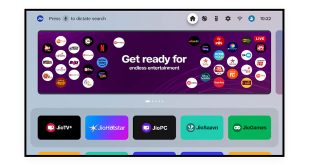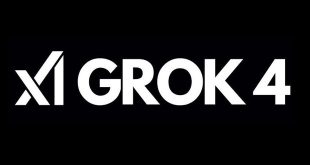Microsoft’s recent layoffs saw software engineers replaced by the very AI systems they developed, raising ethical and industry-wide questions about the future of tech jobs.
Microsoft’s aggressive push into artificial intelligence has triggered a paradoxical and unsettling trend: software engineers tasked with developing and integrating advanced AI tools have found themselves among the first to be replaced by the very systems they helped create. As the company implements sweeping layoffs, the move underscores both the promise and peril of rapid AI adoption in the technology sector, sparking debate about the future of tech employment and the ethical responsibilities of industry leaders.
Layoffs Target Engineers as AI Integration Accelerates
In May 2025, Microsoft announced the layoff of approximately 6,000 employees worldwide, marking one of the largest workforce reductions in its history. While the company cited organizational restructuring and the removal of management layers as the rationale, internal data and industry analyses reveal a different story. Over 40% of the layoffs in Washington state targeted software engineers, while customer-facing roles such as sales and marketing were largely unaffected.
The timing of these layoffs is particularly notable. In the months leading up to the cuts, engineers were directed to increase their use of AI-powered tools—particularly those built on OpenAI’s technology—to generate as much as 50% of their code, up from the previous average of 20–30%. Shortly after this shift, many of these same engineers were let go, fueling concerns that their efforts to integrate AI were, in effect, training their own replacements.
The Human Cost: Voices From Within
The layoffs were not limited to junior developers. Employees in product management, technical program management, and even those leading AI initiatives were affected. Gabriela de Queiroz, Microsoft’s Director of AI for Startups, publicly confirmed her dismissal, describing the experience as “bittersweet” and expressing deep appreciation for her colleagues’ dedication. Her story is emblematic of the broader impact: highly skilled professionals, instrumental in Microsoft’s AI transformation, suddenly out of work as the company pivots to automation-driven efficiencies.
One Microsoft vice president reportedly instructed his team to use AI chatbots for up to half their coding tasks, only for that team to be dissolved weeks later. This sequence of events has sparked internal and public debate about the ethics of using human labor to advance technologies that ultimately displace those very workers.
Is AI Really Replacing Engineers—Or Is It Cost Cutting?
While headlines often attribute these layoffs to AI, industry experts caution against oversimplifying the narrative. The tech sector, including giants like Microsoft, Meta, and Google, experienced significant overhiring during the pandemic. As companies now refocus on profitability and efficiency, AI becomes both a tool for productivity and a convenient justification for workforce reductions.
Microsoft CEO Satya Nadella has stated that AI now writes about 30% of the company’s code, with some projects relying almost entirely on software-generated code. Google CEO Sundar Pichai and Meta CEO Mark Zuckerberg echo similar trends, with Pichai noting that AI writes well over 30% of Google’s new code and Zuckerberg predicting that AI could write all code for Meta’s Llama project within 18 months. Despite these advances, experts argue that AI is currently enhancing productivity rather than completely eliminating engineering roles at scale.
Broader Industry and Economic Implications
The layoffs at Microsoft highlight a broader trend in the tech industry: as companies invest billions in AI development and infrastructure, they are forced to make difficult choices about workforce allocation. The economic impact extends beyond Microsoft, with thousands of highly skilled workers now seeking new opportunities and regions like Washington state bracing for the ripple effects of reduced consumer spending.
Protests have erupted in response to the layoffs, including disruptions at Microsoft’s Build 2025 event, where employees voiced concerns over the company’s priorities and ethical obligations. The situation has ignited a wider debate about the societal responsibilities of tech giants as they navigate the balance between innovation, profitability, and employment.
Looking Ahead: The Future of Tech Jobs in the AI Era
As Microsoft and its peers continue to integrate AI into core operations, the nature of tech employment is undergoing a fundamental transformation. While AI promises unprecedented productivity gains, it also raises urgent questions about job security, reskilling, and the ethical deployment of automation.
For engineers and other tech professionals, the message is clear: adaptability and continuous learning will be essential in an industry where the only constant is change. For companies, the challenge lies in harnessing AI’s potential while honoring commitments to their workforce and society at large.
Conclusion
Microsoft’s decision to lay off engineers after tasking them with building and integrating AI systems encapsulates the complex realities of the modern tech industry. As AI-driven automation accelerates, companies must confront not only the economic imperatives but also the human and ethical dimensions of technological progress. The story unfolding at Microsoft is a cautionary tale—and a call to action—for the entire sector.
 Digital Tech Byte Latest Technology News
Digital Tech Byte Latest Technology News





